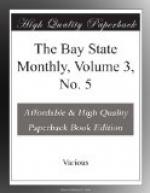If companies are honestly and capably conducted, and risks judiciously selected, there is nothing in the experience of life companies to indicate that mortality assessments on the average will be sufficiently burdensome to seriously threaten the permanence of the institution. Where disaster has been visited upon assessment companies, the cause has been easily traceable to incompetent or dishonest conduct of the business, and utter disregard of the foundation principles of all insurance. It has in no instance been fairly chargeable to defects in the system. With the record before us of our best assessment companies, faithfully and competently administered, paying their losses promptly, at a cost to the insured for a term of years, of one third to one half only, of that in level premium companies, what reason is there for the insuring public withdrawing their patronage.
But we admit that it is not sound policy to depend upon assessments alone, and this view is held by most if not all, who have studied the subject in its various aspects. While for many years, and perhaps indefinitely, a company might be successfully conducted, if under a competent management, depending solely upon assessments, yet contingencies arc liable to arise in which it will be evident that true conservatism and wise forethought would have held in hand some funds for use without imposing, at that particular time, the burden of an assessment upon the policy holders.
The advocates of such conservatism have been met with the argument that it is contrary to the principle of assessment insurance, and a concession to the theory of the level premium plan. But the reply is that the requirements of an assessment company in the form of an emergency or reserve are in no sense comparable with those of a level premium company, and the application of it is upon an entirely different principle, and for an altogether different purpose.
An assessment company may need funds in hand to relieve its members of an assessment when otherwise they might be overburdened, because the death rate fluctuates in different years. Or again, in case of a depleted membership from any cause, the assessment company would need funds in hand to supply any deficiency in the proceeds of an assessment below the face of the maturing obligation. For either purpose a comparatively small sum is required, while the level premium company must pile up tens of millions of overpayments to cover the requirements of the principle on which it conducts its business. It is susceptible of mathematical demonstration that one or two millions of dollars of reserve is adequate to perpetuate any well conducted assessment company for all time, however large or small it may be, while the spectacle is presented to us of level premium life companies holding fifty to one hundred millions of accumulations belonging to their policy holders, from which no possible benefit, in most cases, will ever accrue to them. We therefore




